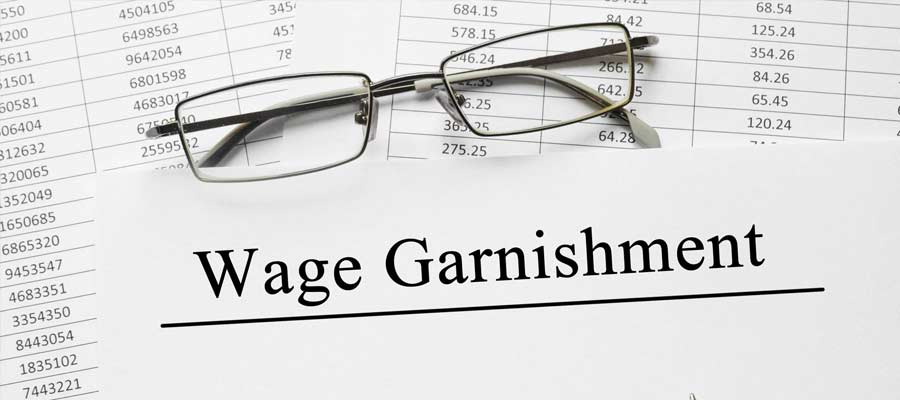
Wage & Account Garnishment Defense Attorney in Miami
Most attorneys do not call themselves garnishment defense attorneys. For that reason, garnishment defense is not a debt attorney service that is prominently advertised on television or in the newspapers. When people are faced with garnishments, they run to their family attorney, to their criminal attorney, or just about anyone who may guide them in the right direction. Getting a garnishment is not a good thing, and therefore, it is ill-advised that anyone consult but with a legal professional who deals with this process on a regular basis.
Garnishment defense attorneys are debt attorneys who attempt to resolve the issues related to creditors attempting to collect on final judgments obtained against consumers in court.When consumers fail to meet their obligations under their payment plans with creditors, the creditor usually begins the process by attempting to collect on the debt in a non-threatening way. Thus, delinquent account holders are usually first met with non-threatening warning letters advising of the tardiness of the payment only. Later collection efforts are stepped up with more threatening letters or even calls, seeking immediate payment or a dialogue between the parties to resolve the matter.
After collection efforts are fruitless or the payment arrangements sought by the account holder are declined, the creditor seeks redress through the courts. Creditors eventually file a lawsuit to collect on the monies owed through the courts. They seek a declaration by the judge, that the money is owed, that it is uncollected, and that it may be collected once the judge signs a document called a final judgment.
If the creditor cannot get its money during the legal process or after a final judgment is entered, the creditor has legal remedies available to get paid. This is so because the judgment is not enough by itself, to have the creditor get back the amounts owed. What most people don’t know is that the creditor must go back to court again to file additional documents to get their money. This is where the writ of garnishment filed by the creditor holding the final judgment comes in.
The creditor applies to the court for a writ of garnishment once the attorney for the creditor figures out where the debtor works, or where the debtor banks. In short, a writ of garnishment can go against a debtor on his bank accounts or against the debtor’s wages. The garnishment defense attorney attempts to thwart the efforts of the creditor attorneys to go after the accounts or wages of the judgment debtor.For that reason, a judgment debtor must be an informed consumer and engage the services of an experienced garnishment defense attorney to eliminate or lessen the likelihood that the creditor will take away the person’s wages or monies sitting in their bank accounts.
But, how then can a creditor go after the debtor if the final judgment is not enough to collect the monies owed? Unfortunately, the creditors are armed with a fact information sheet. The final judgment provides for the creditor to seek and the debtor is required to provide, any and all financial information of the judgment debtor through a documents called a fact information sheet. In other words, the debtor is under a legal obligation to comply with a final judgment which almost always requires the debtor to provide the place of employment, the salary made, and the address of his employer. Moreover, the fact information sheet, the document which has to be provided to the creditor once the judgment is entered, requires the debtor to also provide information on the name and location of the debtor’s assets, including bank accounts and vehicles.
Once the final judgment is entered, the debtor receives the fact information sheet to provide to the creditor. Of course, most people do not want to provide the creditor with this information. The fact information sheet providing the financials to the creditor must be filled out by the debtor and returned to the creditor within 45 days. If not received, the creditor can petition the court to issue an order against the debtor for non-compliance which may result in the debtor having to explain to the creditor and the judge why the debtor did not follow the judge’s order to provide the financial information. It is important to note, that most creditors already have the debtor’s information from their financial application or they can get it from their credit report. Consequently, it is not necessary for a creditor to wait to get a fact information sheet for that creditor to file a writ of garnishment immediately after a final judgment is entered.
So if the judgment is entered and the creditor files the writ of garnishment what can the debtor do? State law recognizes the importance of due process for debtors and legislation is codified such that the creditors must provide certain notices to the judgment debtor with the writ of garnishment, including a list of possible exemptions under the law, which if claimed by the debtor, may indeed deny the creditor the ability to collect on the garnished amounts.
As an experienced bankruptcy attorney in Miami, I understand garnishment law, its requirements and its nuances and I can best guide debtors to assert their rights under the law to stop a wage or bank account garnishment. Please solicit a free consultation with our office so that I may review your documents and your situation and so that I may provide you with your legal options.
